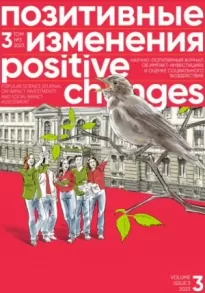Позитивные изменения. Том 3, № 3 (2023). Positive changes. Volume 3, Issue 3 (2023)

- Автор: Редакция журнала «Позитивные изменения»
- Жанр: Научная литература / Газеты и журналы
- Дата выхода: 2023
Читать книгу "Позитивные изменения. Том 3, № 3 (2023). Positive changes. Volume 3, Issue 3 (2023)"
MODEL 5: “MULTI–COUNTRY PARTNERSHIP”
As its name implies, the “Multi-Country Partnership” model fosters collaboration and knowledge exchange between universities in different countries, to develop and implement social innovations.
This model contributes to the integration of diverse cultures, traditions, and ideas, creating a broader and more diverse pool of knowledge and experience for the development of social innovations. Partnerships between universities from different countries facilitate the exchange of knowledge, the exploration of various approaches to addressing social issues, and the application of the most effective practices.
The main advantages of the “Multi-Country Partnership” model are:
1. Expanding Boundaries: Participating in multi-country partnerships allows universities to transcend their geographical boundaries and engage with colleagues from different countries. This international dimension brings a diverse range of perspectives and expertise to the table.
2. Collaborative Learning: Students and faculty can benefit from opportunities like student exchanges, internships, and training programs at partner universities. This exposure enables them to acquire new knowledge and skills and gain insights into different cultural and educational contexts.
3. Developing Collaborative Projects: multi-country partnerships enable universities to work together on joint initiatives addressing social challenges through innovation. By leveraging the strengths and resources of multiple institutions, these projects become more effective in achieving their goals.
The UK-India University Programme on Social Enterprise is a notable example of international collaboration in the field of higher education and social entrepreneurship. In 2014, the British Council invited several higher education institutions in India, both public and private, to collaborate with five British higher education institutions, including UnLtd UK, Southampton University, Plymouth University, Northampton Business School, and Glasgow Caledonian University, to explore how higher education can contribute to the growth of social entrepreneurship. The aim of the UK-India University Programme on Social Enterprise was to facilitate the development of a collaborative network between the UK and India in the field of social entrepreneurship. The recommendations formulated within this program included the establishment of a joint network of said social enterprises with a specific emphasis on higher education, with support from the United Kingdom.
The Indian policy framework encourages universities to incorporate social entrepreneurship courses into their academic curricula, including remote learning courses, and to actively promote the growth of new startups through the establishment of incubation and innovation centers. 3,000 college-based entrepreneurship hubs (E-Hubs) are expected to open across the two countries, to facilitate entrepreneurship education (Cruz, P. R., Rebourseau, V. & Luisi, A., 2018).





